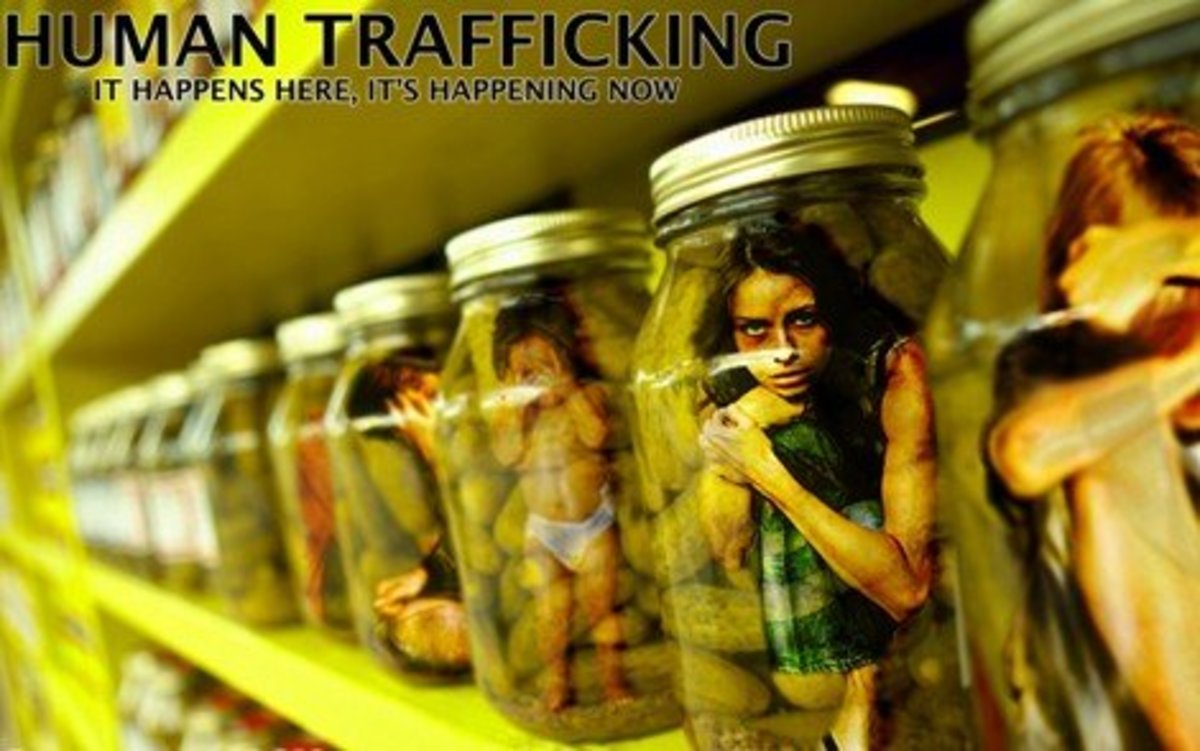International Relations and Human Rights 1: Genocide & Human Trafficking
The violation of human rights is not just a national concern but involves international dilemma. It impacts not only the territory suffering from this civil unrest but has international repercussions. Ergo, when a nation fails to address these serious social concerns, it is the mandated responsibility of the union of nations to act against these inhuman circumstances. Two of the biggest issues related to national violence that needs an international response are genocide and human trafficking.

Genocide
Genocide was one of the four atrocity crimes defined in the 2005 World Summit along side with war crimes, ethnic cleansing and crimes against humanity. Atrocity crimes are characterized by one, the magnitude or the severity of the crime that includes noncombatant victims. The large-scale executions of such crimes have devastating effect on human casualty, cultural destruction and property losses. Second, the crime could occur at anytime—a time of peace, a time of upheaval, a time of civil unrest that could be categorically international or national in characteristic. Third, the act must be identifiable i.e. “genocide” is properly and exhaustively described on international law and in all other courts of law. Fourth, the crime is lead by a ruling elite during the whole extent of the crime—rebel group, insurgent, etc. Lastly, though it is the nation’s responsibility to put in trial the perpetrators of an atrocity crime, customary international law will also held the accused individual criminally liable (Scheffer, 2008).
When talking about the issue of genocide, the first thing that would come up on anybody’s mind is the Rwandan genocide. In 1994, an estimate of one million Tutsis and Hutus were massacred because of ethnic cleansing and power struggle. The extremist Hutus through their calculated attacks were able to seize power after assassinating the President and ten soldiers of the UN Assistance Mission for Rwanda [UNAMIR]. What followed was a military campaign that brought down Jean Kambanda, the rebel leader who led the extremist Hutus. Though Kambanda pled guilty to genocide before the ICTR, the political tension in Rwanda was still high even with the accused being tried and the government being led by Tutsis and moderate Hutus (Sadat, 2009).
Human Trafficking
The other national concern that needs international response is human trafficking. Human trafficking has been an international phenomena that victimize women and children who are often exploited for prostitution and sex trade. Sex tourism in particular has been a booming business especially in developing countries. A well-developed country like the Unite States is no exception though. Human traffickers often lure in their target through false-front agencies, abduction, and manipulating on the innocence of children, uneducated women, and poverty. In the US for example, children are used for pornography, internet prostitution, before finally making it to actual prostitution. Their falsified documents and undocumented status are used to restrain their victims by capitalizing on their illegal alien status. Mere force or show of violence is also used to coerce the victim into prostitution (Hodge, 2008).
The United States acknowledge the rights of the human trafficked victims in 2000 through the creation of Trafficking and Violence Protection Act. It recognized that victims of human trafficking are often more severely punished than the trafficker. It required that victims are protected from being improperly penalized because of unlawful acts committed due to being trafficked like falsified document and undocumented status for working and upon entering the country. They are also entitled to “T-visas” that will grant them welfare and protection (Ibid).
Tepelus (2008) suggests that to address the transnational problem of human trafficking due to prostitution and sex trade, it is crucial to tap on the corporate social responsibility within the framework of tourism industry and sustainable development. Though adult prostitution are considered legal in some countries, UNWTO specified that child sex tourism—tourists who engage in sex with minor, is a criminal offense and a blatant violation of the Rights of a Child. UN Article 34 specifically protects the Rights of a Child against prostitution and any form of sexual exploitation. Non-government organizations have partnered with various commercial businesses to give their part on corporate social responsibility in promoting the rights of a child. For example World Vision, a Christian humanitarian organization, created a campaign that hopes to stop sex tourism with its powerful slogan “Abuse a child in this country, go to jail in yours” by discouraging foreign sex tourists (especially American pedophiles who account for one fourth of the total sex tourist worldwide) through its deterrent posters scattered along airports. ChildWise Tourism is a program of the ECPAT international that operates in Asia is aimed to educate and create awareness among travelling minors, tourism students and educators travelling in identifying children who are at risk of child exploitation.

Refugee Rights
- International Relations and Human Rights 2: Refugee Rights
The issue regarding refugee welfare must be addressed through the human rights prism. Such concern to address is the wave of refugees who are escaping their country due to economic deprivation.
Conclusion
To answer the call for justice of genocide victims and to avoid it from happening again, the UN and International Criminal Court needs to grow more teeth in asserting their duties and responsibilities to intervene on nations that manifest obvious signs of genocide. Their efficacy in preventing genocide is minimal though efforts to provide aid and political control are present. Helping establish political control has been extended in Rwanda though it did not help alleviate the political tension between the two ethnic groups. However the spotlight in the country puts them in the limelight as a country to watch out for just in case genocide occurs again. But more than a passive approach to the problem, a solution through the form of a dialogue between the two ethnic groups in the presence of an international council could help address and ease the political tension and ethnic animosity. A more proactive approach is needed to avoid another blood bath like what the Rwandans experienced.
On the other hand, the proactive approach to human trafficking have been an effective strategy, tapping international non-profit organizations to help educate women and children of their rights. Creating awareness helps to anticipate the problem before it occurs. Educating people especially students and young women who could easily fall prey is a way to combat and prevent human trafficking from spreading. It is even made more effective because international non-profit organizations that operate in several countries get to maximize their efforts with the help of corporate partnership with transnational organizations.
References
Hodge, D. R., 2008, ‘Sexual Trafficking in the United States: A Domestic Problem with Transnational Dimensions,’ National Association of Social Workers, pp. 143-152.
Sadat, L., 2009, ‘Transjudicial Dialogue and the Rwandan Genocide: Aspects of Antagonism and Complementarity,’ Leiden Journal of International Law, vol. 22, DOI: 10.1017/s0922156509990082, pp. 543-562.
Scheffer, D., 2008, ‘Atrocity Crimes Framing the Responsibility to Protect,’ Case Western Reserve Journal of International Laws, vol. 40, pp. 111-135.
Tepelus, C. M., 2008, ‘Social Responsibility and Innovation on Trafficking and Child Sex Tourism: Morphing of Practice into Sustainable Tourism Policies?’ Tourism and Hospitality Research, vol. 8, no. 2, DOI: 10.1057/thr.2008.10, pp. 98-115.






